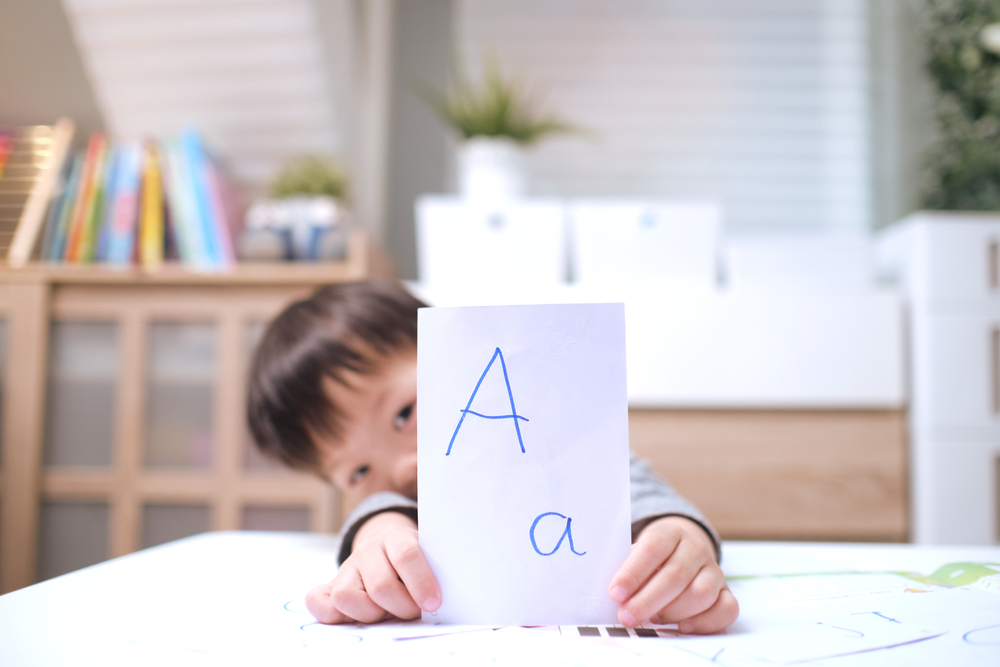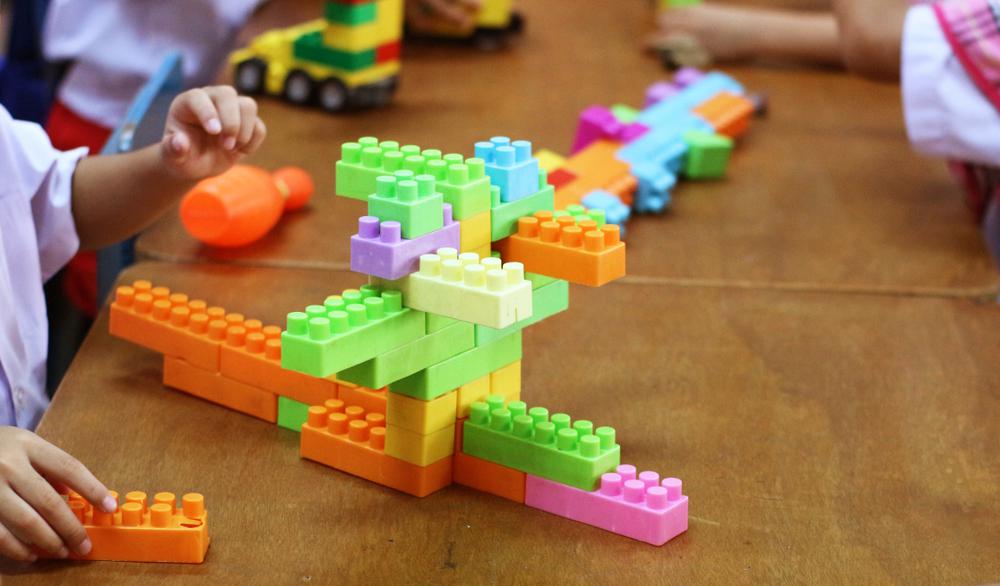Text analysis Reading Worksheets for Ages 3-9
4 filtered results
-
From - To
Explore our engaging Text Analysis Reading Worksheets tailored for children aged 3-9! Designed to enhance reading comprehension and analytical skills, these worksheets invite young learners to dive deeper into stories through fun activities. Each worksheet includes interactive exercises that promote critical thinking, encouraging kids to identify main ideas, characters, and details within texts. Perfect for both classroom and home use, our resources support early literacy development while keeping lessons entertaining. Boost your child's reading confidence and mastery with these age-appropriate, beautifully illustrated worksheets that make learning enjoyable. Visit us today to access a wealth of text analysis activities to enrich your child's reading journey!
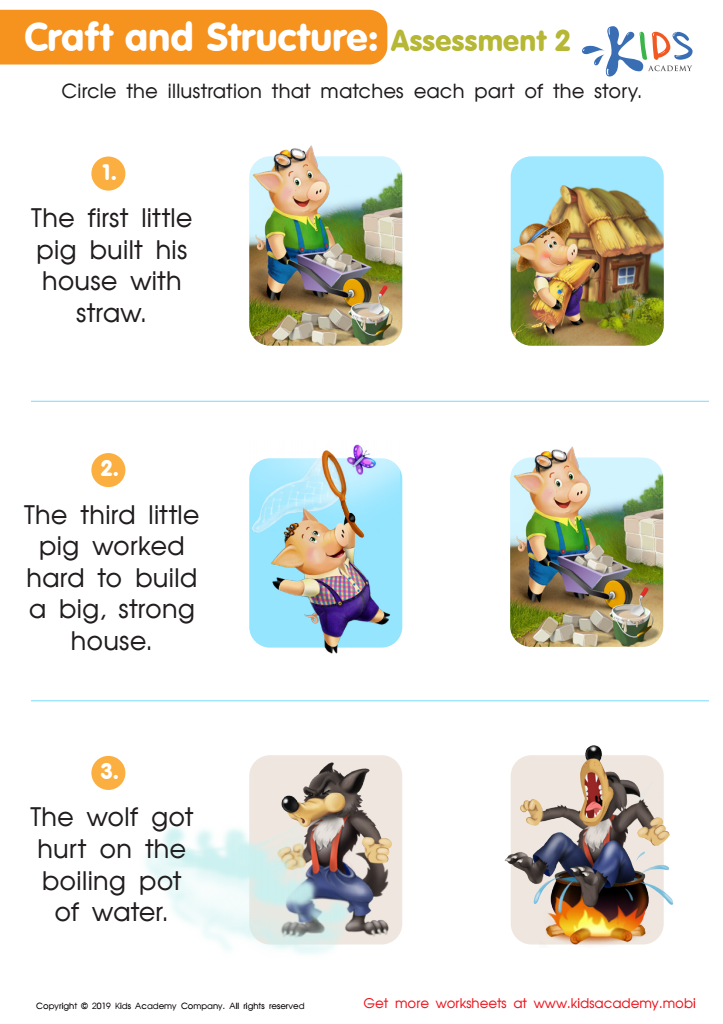

Craft and Structure: Assessment 2 Worksheet 2
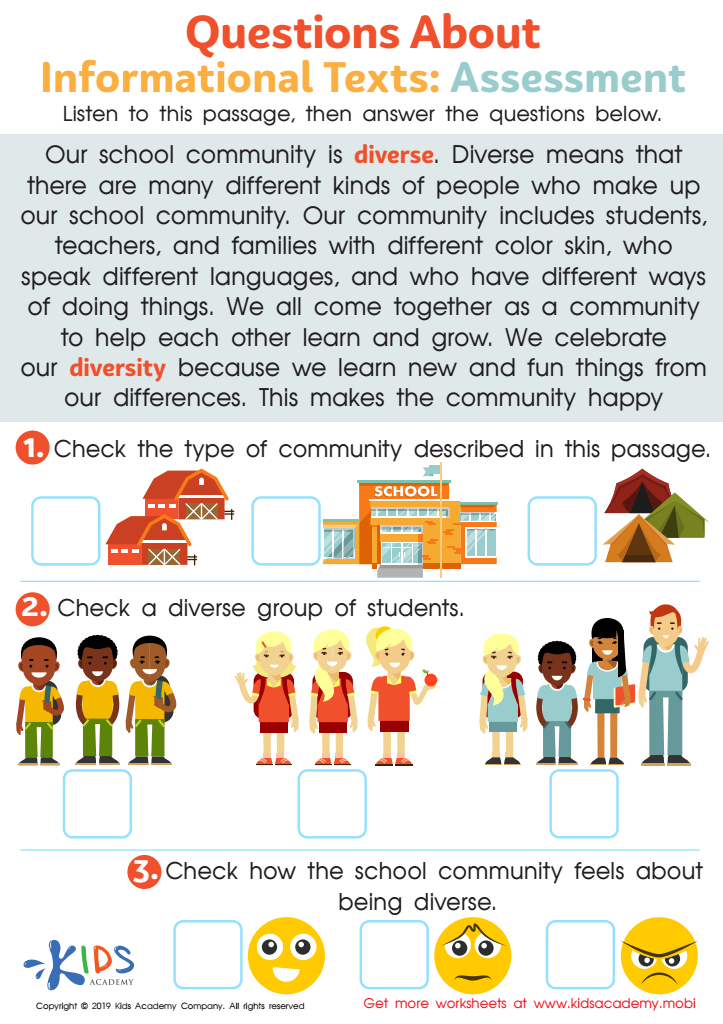

Questions About Informational Texts: Assessment 1 Worksheet
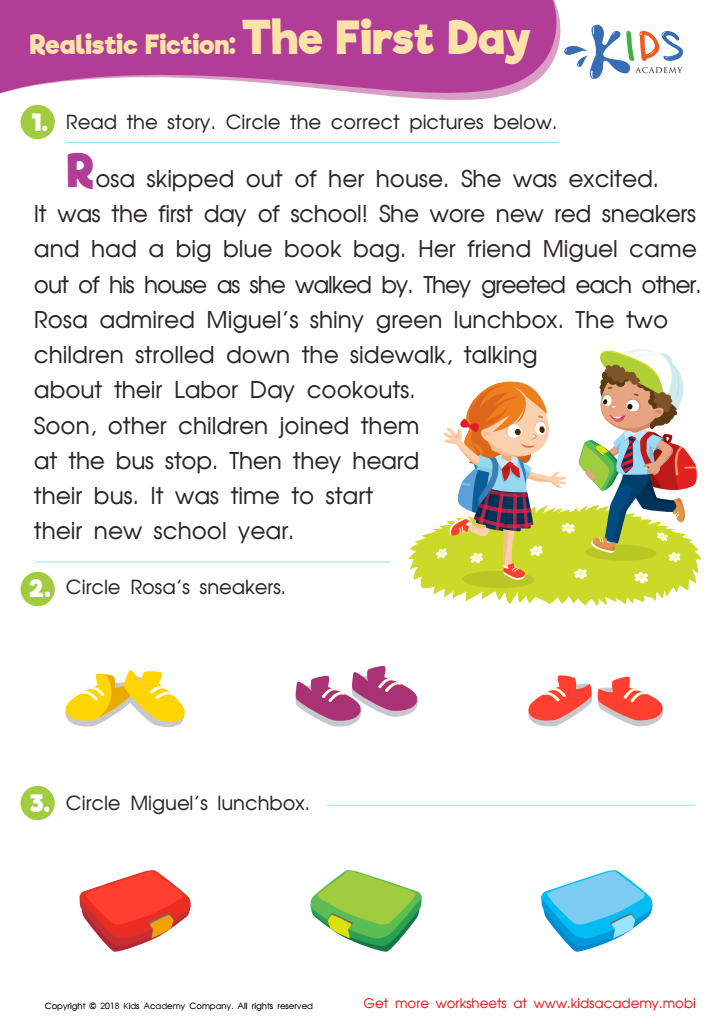

Realistic Fiction: The First Day Worksheet
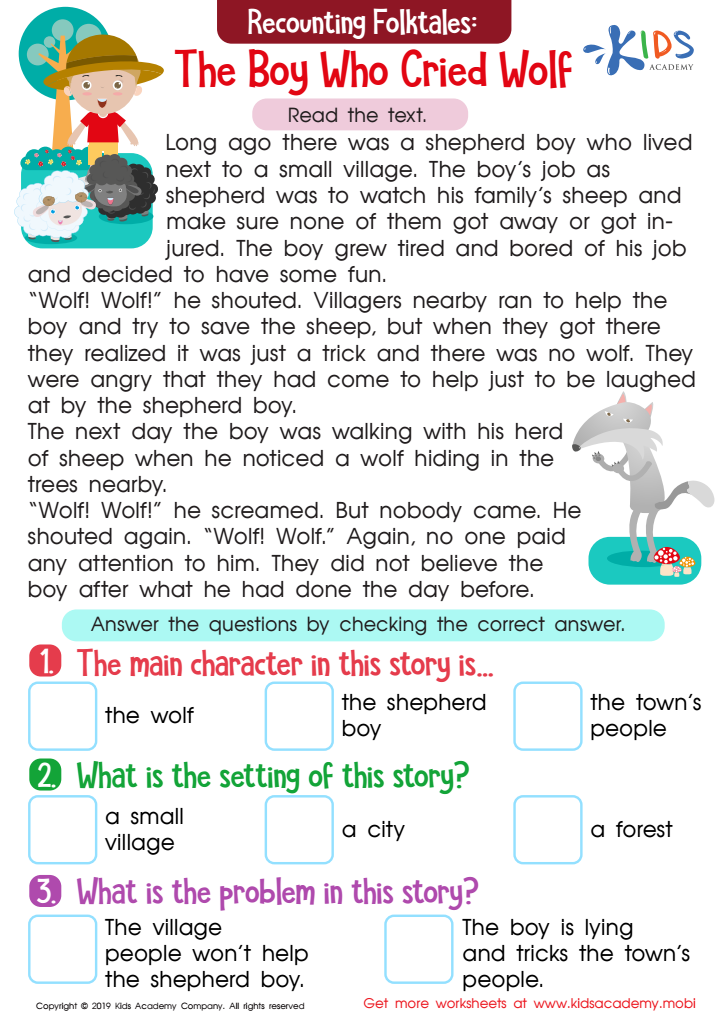

The Boy Who Cried Wolf Part 1 Worksheet
Text analysis reading is crucial for children aged 3-9, as it lays the foundation for their overall literacy development. During these formative years, children engage with texts not just as passive readers but as active analyzers who learn to interpret meaning, understand context, and make connections. This skill aids them in decoding language and grasping the nuances of storytelling.
For parents and teachers, fostering text analysis is essential because it encourages critical thinking and builds comprehension skills early on. As children learn to ask questions about the text, predict outcomes, and summarize information, they develop a richer understanding of the material, which enhances their enjoyment and appreciation of reading.
Moreover, strong text analysis skills are linked to academic success across subjects. By incorporating interactive reading activities that promote exploration and discussion, parents and teachers can demystify texts and make reading a joyful experience. This engagement not only boosts vocabulary and linguistic abilities but also nurtures curiosity and a love for learning, forming lifelong readers and thinkers. Investing time in teaching text analysis ensures our children are well-equipped to tackle more complex texts as they progress in their education, ultimately supporting their growth and development in a competitive world.
 Assign to My Students
Assign to My Students





